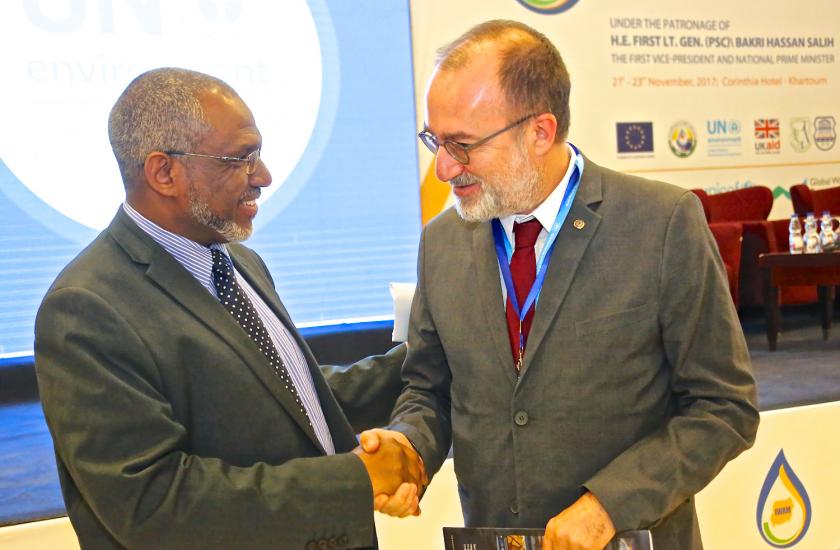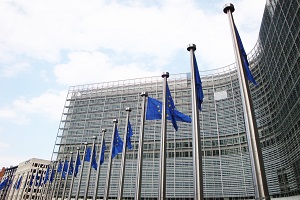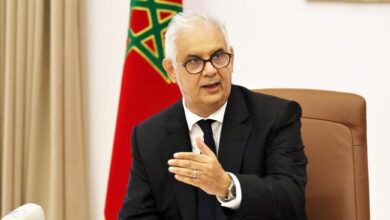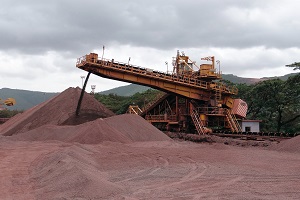Aiming for Sudan’s integrated & sustainable water management

November 2017, Khartoum – As the effects of climate change continue to impact the people of Sudan, greater efforts are being made to understand and manage water. Sudan is heavily reliant on the Nile River for its water needs, but attention is shifting towards the multitude of alternative sources to help support livelihoods which are becoming increasingly threatened by climate change. This is especially true in areas that are further from the Nile where people rely, almost exclusively, on seasonal wadis or streams and underground water sources for subsistence. The uncontrolled and unplanned use of such non-Nile resources can result in either displacement of communities away from areas of depleted water or tension between competing communities, often leading to conflict over limited resources. These provoke a negative cycle of environmental degradation and relapse for the people of rural Sudan. With the proper management of non-Nile sources, a sustained and most optimal consumption of water can help avoid instability and promote peace.
To help address these challenges, a three-day conference was held in Khartoum this November called “Integrated and Sustainable Management of non-Nile Water in Sudan”. Among the many aims of the event, initiating an open dialogue that targets different Sudanese ministers and stakeholders was only one. The event also aimed to nurture a cross sectorial engagement drawing in those that, until recently, have not been fully exposed to integrated water resource management principles. It did so by defining the IWRM approach and showcasing lessons and best practices such as Wadi Elku projects implemented all over the country – most of which bear positive outcomes for people in rural parts of Sudan. Advocating the intrinsic role water plays in economic development and prosperity, given the strong institutional presence at the conference, will contribute to leveraging interest among decision-makers towards long lasting and cohesive water resource management.
Entities and individuals numbering in the hundreds concerned with Sudan’s non-Nile water issues were present. Over thirty-six presentations, intercepted with engaging panel discussions, question and answer sessions in addition to demonstrations were given at the conference. The event’s program focused on matters related to show casing best practice, governance, water data and monitoring, institutional arrangements including community participation in decision making as well as the strengthening of the Sudan IWRM Net established under the UNESCO Chair for Water at the Omdurman Islamic University.

Attracting heads of UN agencies in Sudan and high-level government officials, such as Sudan’s Assistant to the President, Major General Abdelrahman Sadig Al Mahdi, speeches were also given by diplomatic leaders – like the EU Head of Delegation, Mr. Jean-Michel Dumond as well as UK Ambassador, Mr. Michael Aron – all of whom expressed the importance of developing partnerships around a unified vision on water management and sustainability in Sudan.
The Integrated and Sustainable Management of Non-Nile Water in Sudan Conference was a joint venture organised by UN Environment and the UNESCO Chair of Water Resources in Sudan. Key sponsors included The European Union, Sudan government partners, UNESCO Sudan Office, UNICEF, UK Department for International Development (UKaid), UNOPS and The Global Water Partnership.


